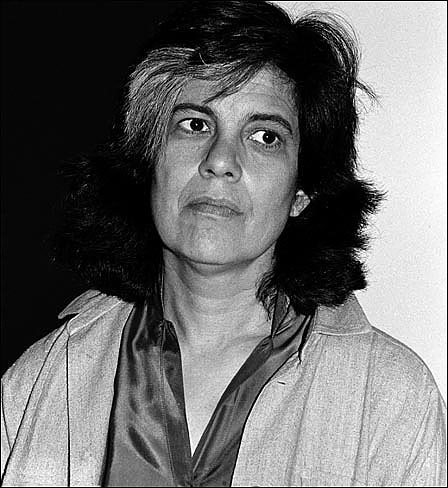
Susan Sontag
When I was a graduate student, I worked as Susan Sontag’s personal assistant for one year. I went to her apartment on East 17th Street on Friday mornings to run errands, take dictation, type letters, and retype essays. (My typing skills were not what she expected so I quickly signed up for a class at a secretarial school near Penn Station that enabled me to pick up speed and keep the job.) I was thrilled to be in proximity to so prominent a writer, and she gave me books and tickets to performances. But she had a tendency to make harsh comments that were likely motivated more by obliviousness than by actual malice. One time in particular she said something so disdainful that I felt as though the breath had been knocked out of me. But I’ll keep that anecdote for another time, when I write the narrative of our odd, attenuated relationship over the years.
I went back in my journals and found entries from the summer when I helped her pack her 8,000 books so she could move from a duplex in a large brownstone on 17th Street to a smaller apartment on King Street. Below is an excerpt from one of those entries.
22 August 1985
I’ve learned a lot about S.S. in the past days packing books with her. Today I came across a photo of Susan as a young girl with her grandfather and her sister Judith. I didn’t even know she HAD a sister—I thought she was an only child. So I asked her about it as we headed out of the house for lunch in Chinatown. She told me that she thought of herself as an only child. She and Judith were three years apart in age, but six years apart in school. The only thing that she remembers about Judith is that she played with paper dolls and she liked jacks. They shared a bedroom until Susan was thirteen years old. Susan felt like she had nothing in common with her family.
Mother: Did you buy the bread?
Stepfather: What bread?
Mother: The bread I asked you to buy this morning!
Stepfather: You asked me to buy bread?
Mother: Yes, I did.
Stepfather: What kind of bread did you ask me to buy?
Mother: I don’t remember. I think it was….
Susan said it was like water torture with this inane conversation dropping on her head. She also commented that she had been very bright, but no one encouraged her, she did it all on her own and who knows what she might have been with more environmental stimulation…She said she had read a lot. She said reading was a wonderful way to travel and to meet interesting people. I suggested, from my own similar experience with reading, that it was also a form of escapism and a way to feel in control, but she does not seem generally interested in the psychological underpinnings of behavior.
Nancy Kricorian
December 7, 2012